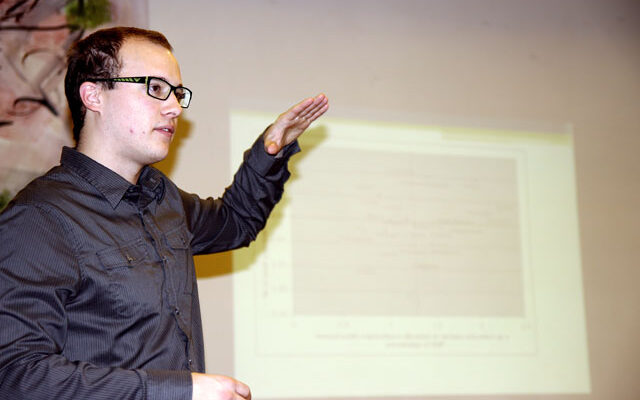
ESU’s projects: Wrapping up 2013 and continuing in 2014
BRUSSELS – The European Students’ Union runs various projects that are used to support the policy work of the union’s Executive Committee and Working Groups. These projects deal mainly with the social dimension and quality of higher education, with the aim of improving quality assurance processes. They are also used to raise awareness among stakeholders and to actively involve student representatives in policy-making processes in higher education.
The outcomes of the three year-long project called Financing the Students’ Future, or FinSt for short, were presented at the end of January 2013. This research project focused on building capacity among students and students union to participate in debates about the financing and public responsibility of higher education. The findings were presented in a special Research Compendium and a toolkit was also made to support students to organise actions relevant to the subject. All the main findings are accessible on the project’s website. Although the FinSt project has officially finished, ESU will continue to use its findings in discussions on the financing of higher education and give voice to its member organisations.
A final conference for ESU’s project called Quest for Quality for Students (QUEST) was held in October 2013, where students’ views on the quality of higher education and ways to engage students in quality assurance and enhancement were presented. A special website dedicated to the subject and several publications were created in order to encourage a continuing participation of students in quality assurance and to increase stakeholders’ awareness of the subject. Among the most important publications in this respect is the Student Handbook on Quality Assurance, presenting the basics of quality assurance and enhancement activities to students. As part of this project, ESU has also developed a Students Experts’ Pool on Quality Assurance with more than 60 participants, to support students’ work in quality assurance in Europe.
Student Advancement of Graduates’ Employability, or SAGE for short, is a project that looks into the different aspects that contribute to the employability of graduates and the initiatives on employability that are led by the European Union. In 2014, the project entered its final stages and the research team behind it will in the following months publish a study on employability and a handbook on the subject. These publications are the result of a survey that was launched in the beginning of 2013 as well as a training session that took place in April that year in Hungary. The main outcomes of SAGE will be presented at its final conference in March 2014.
PASCL
ESU started a new project named PASCL, or Peer Assessment for Student Centered Learning, in October 2013. This project is funded by the ERASMUS Programme and uses the findings and expertise from an older project referred to as PL4SD, with the aim of implementing sound student-centred learning (SCL) strategies and approaches at institutional level and fostering a SCL culture at higher education institutions in Europe. A study with an overview of SCL procedures in Europe will be presented this year that will contribute to the development of SCL in Europe. Later this year, training in SCL will be prepared for selected experts.
ESPAQ
In a reply to the sixth call for proposals within the TEMPUS programme, ESU submitted an application for the ESPAQ project (Enhancing the Student Participation in Quality Assurance in Armenia) that was approved for funding. The overall objective of the ESPAQ project is to strengthen the quality assurance (QA) processes and practices in higher education in Armenia by ensuring that all stakeholders are involved, especially students as the key beneficiaries.
The ESPAQ project started officially in December 2013 and will finish in three years. The project will cover the following core activities:
• Empower students to participate in QA on the level of designing processes and implementing procedures;
• Foster a Quality Culture among students and staff at higher education institutions, by building an understanding and insight into the process of change and the key drivers for success in practice;
• Create a sustainable structure at the national level to improve student participation in quality assurance, encourage peer learning and improve visibility of their actions to the wider academic community;
• Promote the project and its outcomes and ensure its sustainability and wide acceptance among all the stakeholders (also outside Armenia, i.e. in the neighbouring countries).
— END —
For more information, please contact:
Rok Primozic, ESU’s Chairperson: +32/479.126.390 // rok@esu-online.org or Robert Hlynur Baldursson, ESU Communications Manager: +32/473.669.894 // robert@esu-online.org

The European Students’ Union, headquartered in Brussels, is the umbrella organisation of 47 national unions of students from 39 European countries. ESU represents and promotes the educational, social, economical and cultural interests of students at the European level. Through its member unions, ESU represents over 11 million students in Europe. To find out more about ESU, follow us on Twitter @ESUtwt, check out or Facebook page or visit www.esu-online.org. ESU celebrates its 30th anniversary in 2012.



